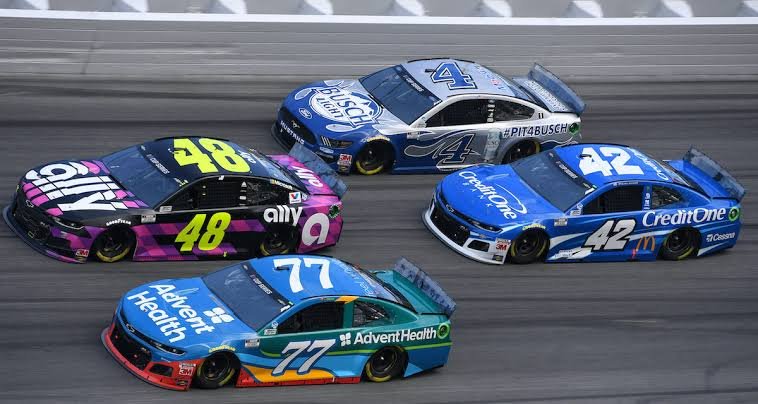LIVE REPORT: NASCAR’s Earnings Silence – A Deep Dive into Driver Finances
NASCAR has never been about keeping things quiet—especially with Cup Series cars roaring at 750 horsepower thanks to their V8 engines. Yet, one area where silence reigns supreme is the financial earnings of its drivers. Unlike more transparent sports like tennis or Formula 1, NASCAR keeps driver earnings under wraps. This secrecy leaves many fans wondering: why the silence?
The Shift from Transparency

Historically, NASCAR provided detailed information about race winnings. Fans could easily track individual earnings, like in 2015, when Joey Logano earned an impressive $1,586,503 for his Daytona 500 victory. However, the game changed in 2016 with the introduction of the charter system. NASCAR stopped sharing individual financial details, fundamentally altering the way fans understand the sport’s economics.
Jeff Gluck, a respected journalist from The Athletic, spoke on “The Teardown” podcast, shedding light on the issue.
“I think it started with NASCAR not wanting—they said, ‘Oh, fans don’t care about the money part of this.’ I think fans definitely do,” Gluck pointed out.
The Charter System’s Role
The charter system, aimed at stabilizing team operations, guarantees revenue for 36 chartered teams. However, it also complicates financial transparency. Driver earnings now come from multiple sources—or “buckets”—such as base salaries, race winnings, performance bonuses, and merchandise sales. This setup shifts the financial focus from individual drivers to teams, making payouts harder to track.
Gluck explained, “It’s not as straightforward as, OK, you finished 13th in this race, so you get X amount of dollars. There’s so much more that goes into it now.”
Initially, NASCAR justified this move due to declining attendance figures. While total race purses have resumed being disclosed—such as $28,035,991 for the Daytona 500 last season—individual earnings remain hidden. These details are reportedly only available to teams for internal financial planning, leaving fans guessing.
Drivers Speak Out
Michael McDowell, the 2021 Daytona 500 champion, discussed how a major win impacts team finances.
“It’s the biggest race of the year for us and for the team from a payout standpoint. It does matter, especially for a team like us at Front Row Motorsports. Winning the race and making the playoffs, financially what that does for you, it sets up the next few years,” McDowell shared.
This secrecy is divisive. Some insiders, including Brian Vickers and Joey Logano, argue it prevents unfair comparisons and jealousy. However, critics say it deprives fans of understanding the financial pressures on drivers, especially those lower on the grid who lack lucrative endorsements and sponsorship deals.
Final Thoughts
NASCAR’s decision to mute financial discussions reflects the complexity of its revenue structure. While the top-tier drivers thrive, those at the bottom face significant challenges. For now, fans remain in the dark about one of the sport’s most intriguing aspects—the money behind the roar of those engines.



